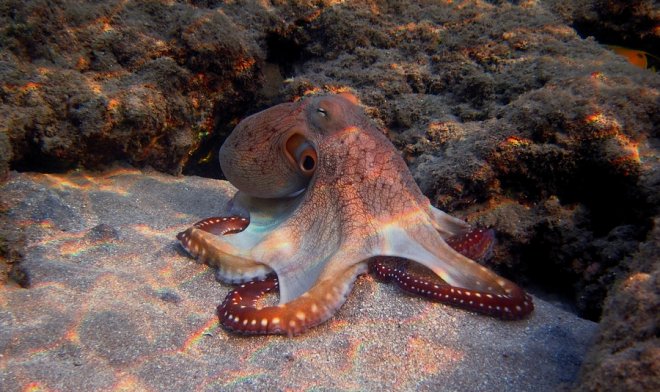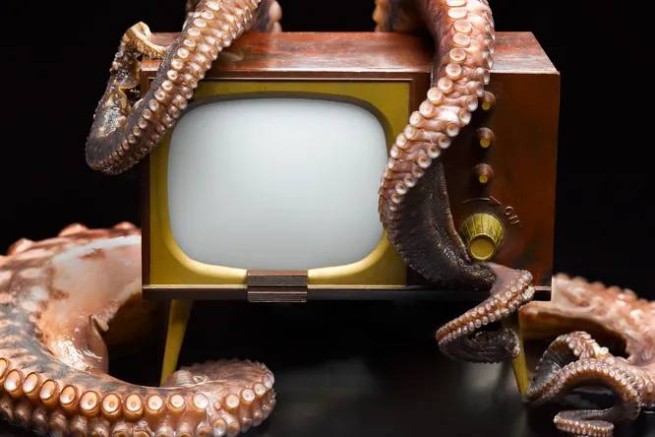Residents of Koufonisia encountered an extremely strange phenomenon.
According to cycladeslive.grena, an octopus stuck to a motorcycle was noticed by a local resident, who began to “tear off” the marine creature “who wanted to take a free ride” from the vehicle. At the same time, other residents began to notice octopuses in very strange places. According to the islanders, the island’s harbor is filled with large octopuses! Ecologists are trying to figure out what made them leave the sea.
@giorgospsarros4
Spanish biologist Antonio Barrow, who has been studying octopuses for many years, claims: sometimes, while people are not looking, laboratory experimental octopuses leave their aquarium, get to the neighboring one, where fish for food are stored and, after having a snack, quietly return back. They are the only invertebrates whose management in Europe is controlled by Directive 2010/63/EU, the protagonists of which are our native mammals.

10 amazing facts about octopuses (data presented by Zhanna Reznikova, Doctor of Biological Sciences, Professor of the Department of General Biology of NSU):
- The retinas of their eyes contain only one type of pigment, allowing them to see only in black and white. Perhaps color vision in octopuses is given by the special anatomy of the pupils.
- They are the only invertebrates whose management in Europe is controlled by Directive 2010/63/EU, otherwise dedicated to “smart” mammals.
- On average, there are 240 suckers per tentacle, but in total there are more than 1900 of them.
- The ink of some cephalopods produces a long-lasting brown color and has been used by artists since ancient times. The name “sepia” comes from Sepiida, meaning “cuttlefish”.
- They have three hearts, two of which are occupied only by tentacles, and one bathes the internal organs with blood. When swimming, this heart stops working, so they usually prefer to crawl.
- Aristotle considered them “narrow-minded”: “Octopuses are stupid creatures, and they themselves swim up to the hand if you put it in the water,” he wrote in “History of Animals” 350 BC. e.
- The complete genome of the octopus O. bimaculoides has been deciphered. Its length is 2.7 billion base pairs, almost the same as that of a human and many times longer than that of any other invertebrate.
- The ink that they throw out in case of danger not only camouflages the octopus, but is also toxic. An octopus that does not leave its own ink cloud in time may die.
- The female lays up to hundreds of thousands of eggs and actively “ventilates” them for months, never leaving the nest for a minute. This activity completely exhausts and ultimately kills her.
- Males die even earlier, after fertilization. Apparently no octopus has ever met its parents.







More Stories
Blue Flag: 22 Greek beaches stripped of honorary label
What Are Cruise Ships Worth for the Planet (Video)
Lightning strikes caused 39 fires in 4.5 hours